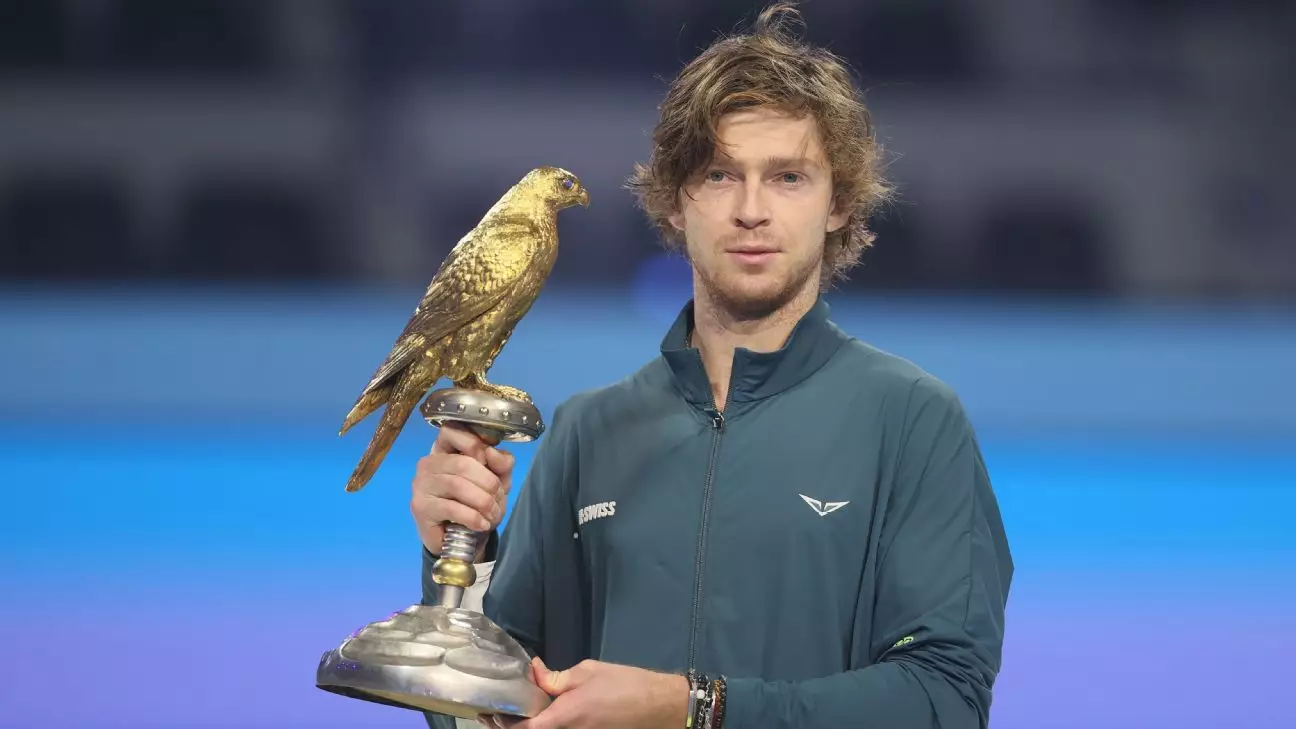In the thrilling climax of the Qatar Open, Andrey Rublev showcased a remarkable performance, defeating Jack Draper with a scoreline of 7-5, 5-7, 6-1. This victory is significant not only as it marks Rublev’s second Qatar Open title but also as a testament to the Russian’s unwavering mental resilience. Throughout the course of the tournament, Rublev demonstrated a profound ability to handle pressure and navigate through the emotional highs and lows inherent in competitive sports.
Rublev’s previous matches set the stage for a high-intensity finale. His journey to the title involved not just physical exertion but significant mental challenges, as he had to fight through three-set encounters against formidable opponents like Alex de Minaur and Felix Auger-Aliassime. Each of these matches tested his resolve, particularly as he struggled to maintain his composure after dropping critical sets. Overcoming these obstacles was fundamental to his success, and Rublev credited his mental approach as key to his victory, stating, “I was really good mentally and didn’t let frustration get over me.”
Strategic Adaptation on the Court
Rublev’s ability to adapt his strategy and mindset during matches proved to be pivotal. After losing the second set to Draper, he refrained from dwelling on the setback; instead, he embraced a more liberated play style, stating, “When I lost the second set, I let it go and started to play more freely.” This shift not only demonstrates Rublev’s experience but highlights the importance of mental agility in sports—a factor often overshadowed by physical prowess alone.
Reflecting on the match’s physical demands, Rublev acknowledged the fatigue both he and Draper faced after a grueling series of three-set matches. His mental fortitude allowed him to push through these limitations, a contrast to many athletes who may succumb to exhaustion or frustration. This aspect of his game underscores how mental resilience can elevate an athlete’s performance, especially in high-stakes scenarios.
Future Prospects for Both Players
More than a personal triumph, Rublev’s victory at the Qatar Open signifies a pivotal moment in his career—his 17th title—a testament to his consistency and growth as a professional tennis player. Until now, Doha had been a landmark for him since it’s where he claimed his first title in 2020, and now he can cherish this accomplishment as a unique feat of winning the same trophy twice.
Conversely, Jack Draper’s performance throughout the tournament should not be understated. Despite the loss, Draper is set to ascend to a career-high ranking of No. 12, which reflects his rapid improvement and potential in the sport. Draper expressed pride in his effort, remarking on the intense competition they faced during the tournament. This sense of achievement can be a vital building block as he prepares for future tournaments, ideally learning from this high-level encounter against an established player like Rublev.
While Rublev’s victory highlighted the critical role of mental composure in tennis, it simultaneously cast a spotlight on the potential emergence of talents like Draper in the competitive landscape of the ATP Tour. Each athlete’s path serves as an insightful narrative on resilience, growth, and the ever-present pursuit of excellence.

